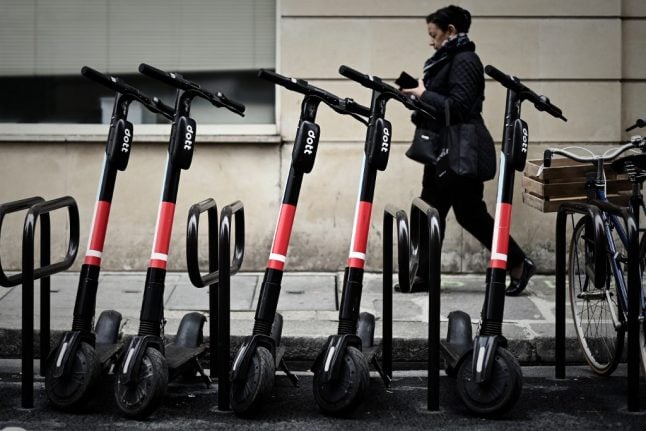The huge proliferation of dockless electric scooters (trottinette electrique) has become something of a headache for Paris authorities and there have been several local bylaws introduced aiming at clamping down on anti-social scooter riding.
After introducing speed limits and banning riding on the pavement, Paris City Hall then introduced a code of conduct for the hire companies to sign up to, which included doing more to deal with broken, abandoned or trashed scooters which were soon littering the city.
However at the end of 2019 authorities decided that more regulation was needed and announced that only three companies would in future be licenced to hire out the scooters in Paris.

Abandoned scooters regularly have to be fished out of the waterways. Photo: AFP
In total 16 applications were received and on Thursday the winning three were announced; Lime, Dott and Tier.
Each operator will be permitted to rent a maximum of 5,000 scooters, a cut to the more than 30,000 scooters available at present.
“The three selected operators will sign an agreement to occupy public space, each authorising them to deploy a maximum of 5,000 machines in the capital.
“They have been selected on the basis of three criteria: environmental responsibility, user safety, and lastly the management of maintenance and recharging of the vehicles,” said Paris City Council in a press release.
The city is in the process of creating 2,500 dedicated parking spaces for scooters, in an effort to avoid them being left strewn over walkways and cycle paths.
READ ALSO Speed limits and no sharing: These are the new French laws for scooter riders



 Please whitelist us to continue reading.
Please whitelist us to continue reading.
Member comments